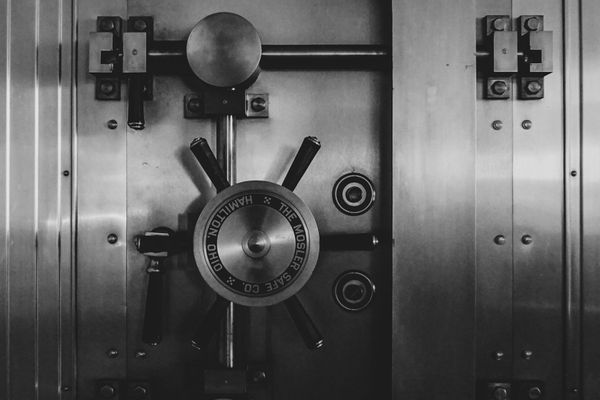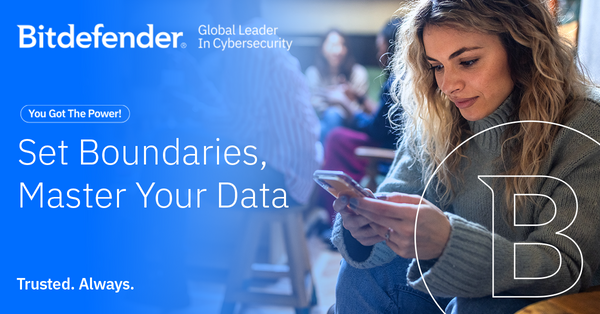What Makes a VPN Trustworthy?

In today’s climate, online privacy has taken on new levels of importance and is no longer seen as optional. Not long ago, the consensus was that you don’t really need privacy unless you have something to hide.
Preserving your online anonymity can keep you safe against various threats, including hackers, intrusive ads, cyber-espionage, and even government monitoring. VPNs are among the best tools to protect your privacy.
However, much like other services and products, VPNs are not all the same. Most of them fight for the same cause, but the way they’re operated, their infrastructure, and the management of the company that owns them are just a few of the aspects that set them apart.
While the role of these factors is to establish healthy boundaries between products and ensure a competitive market, they also weigh heavily as far as trust is concerned.
Why VPNs need to be trustworthy
VPNs deal in privacy protection, and they act as liaisons between customers and the world wide web. In using VPN products, customers essentially find a new way to trade online data privately, away from the gaze of their ISP, the government and criminals.
VPNs route the traffic through a private network of servers so third parties can’t intercept it. However, data interception is so common that simply re-routing traffic wouldn’t be enough to avoid it.
Fortunately, VPNs back up their redirection of traffic with strong encryption mechanisms. That way, even if your data falls into the wrong hands, snoops would still have to decrypt it. With our technology today, hackers would need billions of years to crack standard encryption algorithms (AES-128 and AES-256).
Trustworthiness is vital for VPNs because they handle all of your private data. To put it simply, they can see all the information you want to protect from snooping entities (the government, hackers, your ISP).
A trustworthy VPN won’t even take a peek at your data, let alone monitor or log it. Although most VPNs publicly swear by ironclad policies, some handle private data carelessly or even go against their claims.
What makes a VPN trustworthy?
If trust is a major dealbreaker, you have to be cautious when choosing your VPN. Unfortunately, there are several factors to consider, which could complicate things. Namely:
- Company (industry status, reputation, transparency, integrity)
- Jurisdiction (laws and regulations that can interfere with privacy protection)
- 5, 9, 14 Eyes
- Logging policy
- Collected data
- External audit
- Server count and locations
- Prior security issues with the product
- Advanced features (kill switch, split tunneling, ad blocker, anti tracker)
- Torrenting policies
- Services unblocked (ability to unblock geo-restricted services)
- Money-back guarantee
- Live chat
Company
The company is often the first thing potential customers notice when they pick a VPN. Customers are likely to lean towards it if the product was developed by a reputable, transparent firm with a long history of high-quality products and minimal involvement in scandals.
In other words, if the company is trustworthy, it could make a reliable product. On the other hand, if the company doesn’t meet certain criteria (new player in the field, lacks integrity, is not transparent), the product’s trustworthiness could take a severe hit.
Jurisdiction
Although companies dictate product management, they still have to abide by government laws and regulations. That’s precisely why jurisdiction plays an essential role in a VPN’s trustworthiness.
Most VPN providers set up camp in countries with looser laws on privacy and data collection to cater to the needs of their customers unhampered. However, several VPNs are based in countries with heavy data collection and monitoring laws.
It goes without saying that, when choosing a VPN provider, it is wise to go with firms based in countries where authorities don’t enforce data monitoring and logging.
5, 9, 14 Eyes Alliance
The 5, 9, and 14 Eyes alliances are collaborative efforts between various countries that monitor and exchange sensitive data, such as user activity on the internet, to protect national security.
These countries collect data in various ways, including online trackers, ISPs, and phone tapping. The countries in each alliance are as follows:
- 5 Eyes: USA, Canada, UK, Australia, New Zealand, Australia
- 9 Eyes: Five Eyes countries plus Denmark, the Netherlands, Norway, and France
- 14 Eyes: Nine Eyes countries plus Belgium, Germany, Italy, Spain and Sweden
When choosing a VPN provider for the long run, most customers opt for companies based outside of the 5, 9, or 14 Eyes countries to avoid government surveillance.
Logging policy
Since VPNs deal in privacy protection, they also need logging policies, which dictate the amount and type of data they collect from their customers.
Trustworthy VPN services keep data logging to a minimum to protect the privacy of their customers. Therefore, if their servers are seized by authorities or breached by threat actors, the captured data can’t be tied to customers.
It’s best to stick with a VPN provider promoting and enforcing solid zero-logging and zero-monitoring policies. VPNs that monitor or log user activity on their servers are prone to privacy violations, sooner or later.
Collected Data
VPN providers generally promote zero-logging, an expression that leads customers to believe that absolutely no data is collected. However, closer inspection may reveal that the zero-logging part is actually a gray area.
These pieces of data can range from your name and email address (while registering an account, for instance) to precise geolocation data, IP address, websites you visit, and how long you spent on each page.
When choosing a VPN, it is wise to inspect its logging policies and see if the data it collects while using the product, presumably anonymously, can be easily connected to your real identity.
External security audits
To boost their trustworthiness and give a sense of transparency to their customers, certain VPN providers contract specialized external firms to conduct security audits on their products.
The involved parties decide the range of the investigation, but most providers opt for a full audit that covers the product’s infrastructure, servers, code, website and databases.
VPN providers publish the results of these audits, and, if needed, take additional measures to address any issues uncovered.
Server count and locations
Although not a solid trust indicator, a high server count is a definite selling point for many VPN providers. If the servers are also widely spread throughout the world, their popularity rises even further.
A widespread, extensive server network can ensure that customers can evade geo-restrictions and data monitoring in strict countries.
Additionally, having numerous servers in various locations can decrease the odds of the service being blocked in regions where VPN usage is restricted.
Prior security issues with the product
A VPN’s trustworthiness can take a serious blow if the product suffers security issues, such as privacy violations, data leaks, and even involvement in surveillance scandals.
However, a proper crisis management plan and damage control can limit the impact of these incidents on the product.
For instance, if the security incident didn’t reveal foul play (private data logging, monitoring) and the company’s reaction to the issue was prompt and transparent, the product’s popularity and trustworthiness might even increase.
Advanced features
The presence of advanced features lets users customize their personal experience with the product. For instance, having several encryption protocols, split tunneling, a kill switch, an ad-blocker, an anti-tracking module, or a double-VPN feature can make a product trustworthy.
Customers often don’t take full advantage of these extra features, but simply making them available brings much-needed peace of mind.
Torrenting policy
Torrenting is an effective way to transfer files over the Internet, but digital pirates and warez websites have led to its enduring association with illegal activities.
To avoid sanctions, some VPN providers ban torrenting customers, regardless of the legitimacy of the transferred files.
On the other hand, trustworthy VPN services have looser policies regarding torrenting. Not only do they fully allow it on their servers, but some even offer torrent-specialized servers, all the while advocating for legal and responsible use of torrents.
Services unblocked
Bypassing geo-restrictions is a sought-after feature in modern VPN products and a heavy selling point. Although not strictly an indicator of trust, a VPN’s ability to unblock restricted services can tilt the balance in their favor.
It could lead to trust issues if the product falsely advertises itself as a skeleton key for most, if not all, restricted services.
Money-back guarantee
Trustworthy VPN providers generally require a premium to use their service, and most of the time, they offer money-back guarantees. While these guarantees are meant to boost confidence in their product, certain providers have convoluted policies that make it challenging, if not downright impossible, for customers to recover their money.
A dependable VPN provider should have a clear money-back policy covering most situations that would lead customers to ask for refunds, including dissatisfaction with the speed or a product’s inability to unblock geo-restricted services.
Live chat
Last but not least, a solid customer support team that can answer customer queries clearly and promptly can be a sign of a trustworthy product.
While most VPN providers rely on ticket and email communication systems, some offer live chat support. Customers prefer live chat, even if it takes a little longer for the agent to reply.
It is wise to avoid VPN providers that base their entire customer support system on an online knowledge base.
tags
Author

Vlad's love for technology and writing created rich soil for his interest in cybersecurity to sprout into a full-on passion. Before becoming a Security Analyst, he covered tech and security topics.
View all postsRight now Top posts
Start Cyber Resilience and Don’t Be an April Fool This Spring and Beyond
April 01, 2024
Spam trends of the week: Cybercrooks phish for QuickBooks, American Express and banking accounts
November 28, 2023
FOLLOW US ON SOCIAL MEDIA
You might also like
Bookmarks








